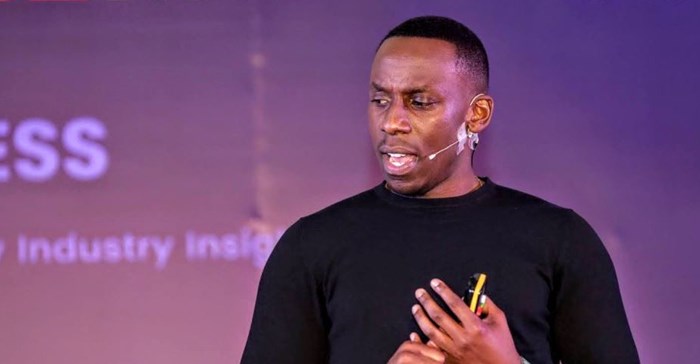
Why Web3 needs Africa and what you can do about it?

"Building and creating has never been new to them. They've always been building and creating innovative systems that they understand to be necessary for them." This was the core message of Kevin Imani's talk at this year's Blockchain Africa Conference, where he proposed the idea that Web3 needs Africa as much as Africa needs Web3.
He is the founder and chief executive officer of Sankore 2.0, which operates in Kenya as Near Regional Hub, dedicated to blockchain innovation, education and talent development throughout the African continent.
He is also the director of Open Forest Protocol Hub (Kenya), which uses blockchain to monitor forest projects end-to-end and offers carbon financing to organisations that might otherwise be excluded from the existing accreditation industry.
Open access to quality education
Founded by Imani, Sankore 2.0 is an open e-learning platform that onboards Africa's youth on Web3 and provides funding and incubation for blockchain projects.
Consequently, Sankore's graduates stand to have a meaningful impact on both traditional and non-traditional financial systems in Africa - providing remittance-, microfinance and crowdfunding solutions, and banking the unbanked through crypto. They also stand to benefit the global blockchain community with their unique approaches to blockchain development, which can help to spur new ideas and solutions.
⭐️ @sankore2_0's @imani_kevin on stage at #CVSummitAfrica, providing his perspective on the importance of Web3 on the African continent, calling it “Africa's Digital Renaissance"!#CVSummitAfrica pic.twitter.com/RIAKSFEfn7
— CV Labs (@CV_Labs) May 5, 2023
By integrating Near protocol that has been conceived and built by local developers in Kenya, Sankore 2.0 is leveraging a decentralised blockchain platform that is designed to support decentralised applications (dApps) and smart contracts. It is similar to other blockchain platforms such as Ethereum, but it aims to address some of the scalability and usability challenges that have been associated with earlier blockchain technologies.
"We were the first ones who practically brought Near into Africa," he said. "Today, Near has become the top 15 blockchain company in the world, with a market cap of $12bn," Imani said.
"It is arguably one of the best techs that we have here in terms of Layer One." And this approach has the potential to be transformative. This is because a Layer One blockchain ecosystem involves developing the underlying blockchain infrastructure and protocol layer, rather than just building applications or services on top of existing blockchains.
Furthermore, it enables Africans to build decentralised applications and services that are tailored to their specific needs and challenges, rather than relying on solutions built for other regions or use cases.
Sankore's early beginnings
Sankore 2.0 draws its inspiration from the ancient original Sankore centre of learning - a prestigious learning centre started in Western Africa eight centuries ago, known for its innovative technologies in fields such as chemistry, physics, and medicine.
"It was founded by a wealthy leader who also developed trade routes across the Sahel region and was known for his assets, including gold. The centre was so renowned that lecturers from other parts of the world had to study and gain competency for 20-plus years before being allowed to lecture there," Imani said.
Sankore was considered to be the first university in the world and played a significant role in African culture and history.
"Part of our identity and value at Sankore stems from this specific history. My understanding was if I were to do anything related to blockchain technology, it would have to be based out of African values and fundamentals passed through time," Imani added.

Sankore 2.0 kickstarted its first pitch competition in Kenya in January 2022. The tour started in Nairobi and was a hybrid event targeting 5,000 people by means of a webinar and an in-person pitching session a week later.
"We wanted to cast the net for projects from Mombasa, Kisumu, Nakuru and Eldoret. We did a lot of different road shows and bootcamp hackathons. Ten projects out of the 175 applications received were approved to participate in the competition," Imani said.
"Three out of the 10 projects that pitched at the event qualified for funding and are currently getting incubated and nurtured by Sankore. Add to this, we have basically provided grants-based support to about 26 founders' projects across Africa, in different countries, and we have 70 projects on the course."
Solving for unemployment in Africa
"This speaks to meeting one of the biggest demands that we have [for jobs in Africa]. Unemployment is a big problem. The numbers that we read online are not true. There are way more people who do not have a stable income in Africa [than we realise], and it's a really big problem," Imani said.
"Add to this, Africa's labour market is characterised by the prevalence of short-term contracts or freelance work, as opposed to permanent jobs. To this end, we built the first ever African on-chain gig economy platform, [which links in to] East Africa's largest developer studio. We're really incentivising more and more and builders and innovators to look at talent overseas."
"This again is an opportunity for us to tell a new story that goes beyond developing products. I feel as innovators, and especially African innovators, that we are doing our thing, but we aren't looking above the surface of the water and asking ourselves where it is that we are heading. What is the story that we want to share with the next generation, and do we actually have the ability to do that?"
Empowering the youth
"At Sankore, we want to empower - and the keyword is 'empower' - young Africans to become role models in tech over the next 50 years," Imani said.
"I'm encouraging companies to think about the narrative upon which they're building their products, upon which they're building their community, upon which they're investing. Because I think that's quite essential. I think there's a special opportunity for us today to start thinking specifically about upskilling Africa's youth.
"By offering the youth in Africa Web3 training, you're helping to level the playing field for African learners and providing them with the tools they need to succeed. This, in turn, translates into the growth of the global blockchain industry. We have an ability to contribute to that, to change the narrative that we get to tell. Because if we don't do it, somebody else will."
About Katja Hamilton
View my profile and articles...